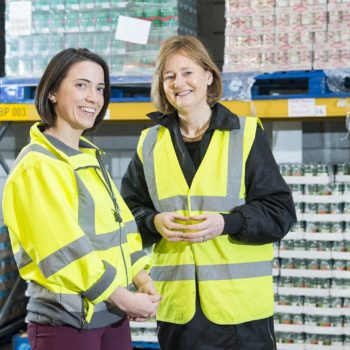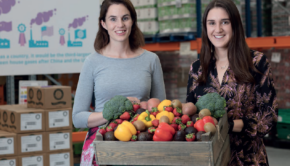EU programme aims to provide for those in need using FoodCloud hubs

The FEAD Programme (Fund for European Aid to most Deprived) assists long term rough sleepers and homeless, children in low income households and many other vulnerable people in society.
12 January 2018
FoodCloud Hubs and the Department of Employment Affairs & Social Protection are working together to provide food to the most deprived in Ireland, the two groups have announced. The FEAD Programme (Fund for European Aid to most Deprived) assists long term rough sleepers and homeless, children in low income households, victims of domestic violence in shelters and refuges and many other vulnerable people in society.
Welcoming the European funded FEAD programme, Deirdre Clune MEP for Ireland South, lauded the FoodCloud hubs for their management of food surplus between retailers, the industry and the charities in need. “Thanks to EU funding, the FEAD programme provides non-perishable food to those most in need in a very structured and sustained way,” said Clune. “Given the tonnes of food waste in Ireland alone, this programme is a win-win.”
Through FEAD, FoodCloud Hubs procure, store and distribute non-perishable goods, such as breakfast cereals, porridge, soups, pasta and rice, canned vegetables among others. The foodstuffs are then provided to eligible organisations based on a regular, specified food collection schedule.
“We’ve had growing support from the food industry in Ireland,” said Eimear Delahunty, FoodCloud Cork Hub, “with over 100 businesses now supplying surplus. Much of this food tends to be fresh and perishable food. The addition of the FEAD programme has been fantastic for our 150 partner charities. They now have a supply of store-cupboard items such as tea and rice that are a perfect addition to their surplus products. This has had huge benefits for their organisations both in terms of savings and services delivered.”



 Print
Print



Fans 0
Followers